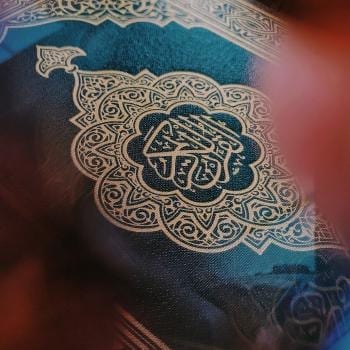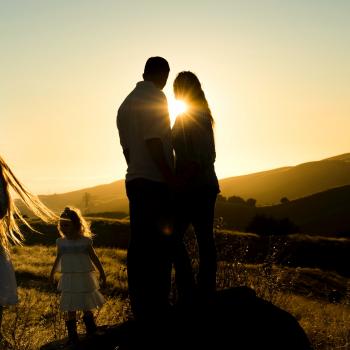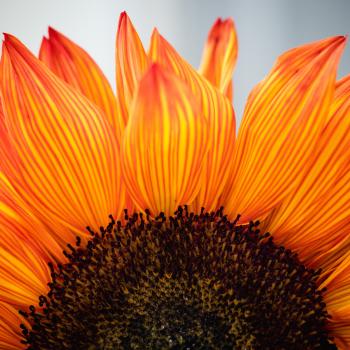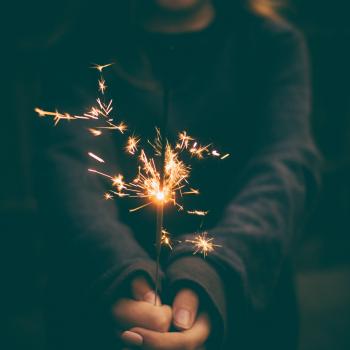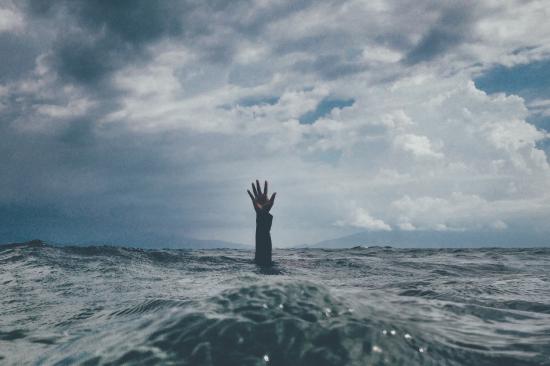
I had just finished my physical therapy session in the afternoon and timed it perfectly to pick up the kids from school. Perfect timing or not, my pain level was high and my body stiff and sore from the poking and prodding. It was a twenty-minute drive from the therapist’s office to the school; not much, but too much for me, even with my cushion.
The day reflected the essence of autumn; the sun shrouded behind clouds, leaving pools of blue in between. The palm trees danced with the wind, who reciprocated with intermittent whistling. Making the most of the drive, I slid the windows down and joined in the play. I love driving with the windows down; the fierce yet gentle breeze flowing through the crevices of my scarf, as if I’m flying. I have always wanted to fly, since I was a little girl.
I reached the school, parked, and limped my way into my eldest’s classroom. Always the quiet one, he was engrossed in his own crafts project, unaware of my presence.
“Ahmed time to go!” his teacher remarked. He grabbed his project and proudly presented it to me.
“Look, Mommy!” he enthusiastically exclaimed, waving his paper in my face. What looked like a bunch of tiny colorful cotton ball-esque items glued sporadically on construction paper was actually a depiction of me.
“Wow!” I replied with a bit of bewilderment. “It looks so awesome! Hey, let’s go get Hamza, okay? Grab your things.” He quickly grabbed his backpack and stuffed his project inside. I slowly walked toward Hamza’s class, Ahmed already inside.
“Their class is still outside,” another teacher informed. “How are you today?”
“Oh, great!” I said while limping toward the door that lead to the playground. “How are you?”
“Doing good,” she replied.
Outside, Hamza was busy riding his tricycle in their make-shift racetrack. Once he saw me, he immediately got off, shouted “Mommy!” and ran toward me with a hug as if he hadn’t seen me in a year.
“Ow,” I said instinctively to his abrupt hug. “Hey, Hamza! Ready to go? Let’s get your stuff and go home.” They both ran ahead of me as I opened the door to the classroom. Ahmed opened the classroom door and they escaped into the common area where they decided to play an instinctive game of hide-and-seek. I can’t do this right now, I thought.
“Guys, stop,” I demanded. They came out from behind a couch and ran to the exit door. I always hold Hamza’s hand because he runs off, and if he runs, then I have to run —and I can’t run. He slipped away from me and ran with his brother, who opened the exit door into the parking lot.
“Stop, now!” I yelled at the kids. Ahmed stopped at the sidewalk, but Hamza continued to run into the parking lot where a car was backing up. My limping discontinued and I ran. I ran as if I was never sick and my body was whole again. I grabbed him and stepped away from the backing car. I then grabbed my abdomen where a sudden sharp tearing force compelled me to hunch over in agony.
Still hunched over, I looked at Ahmed and signaled him to walk over toward me. He ran to me and I braced my hand against his shoulder to straighten my back slowly, while keeping Hamza’s hand in the other. I looked over to Hamza and said, “Never run into the parking lot again! When we are outside, you always, always hold my hand! Understand?” He nodded his head. We walked slowly to the car. It seemed a mile away. Every step was another minor tear felt in my abdomen. We finally reached the car where I aided Hamza with his seatbelt. My nerves started getting involved, too, zapping and stabbing till I stumbled my way into the driver’s seat.
“Put your seatbelt on, Ahmed,” I exhaustedly told my eldest. I left mine off. The compression of the abdomen while sitting was enough to keep it persistently raw and tearing; I wasn’t going to add another layer of force. I sat for a while, closed my eyes, and inhaled. I let my breath out as I put the keys in the ignition and rolled the windows down. As I drove, the pain was callously relentless, but I never cry because of my pain.
As I looked around at the preciseness of nature, I saw a woman through my passenger side window running with sneakers on, headset ready, and donning her t-shirt and pants. The glance was in a split second, but the grief and heartache that ensued lasted long after.
I used to be an avid runner, effortlessly running six miles every day, before I became ill with chronic pain. Every day I would eagerly await the moment I could put on my shoes, running gear, head wrap, and headset and embrace the nature around me. It was the closest thing to flying; every step and movement invigorating my being while feeling the breeze almost lift me into the air.
Now, when I looked at that woman, I knew that longingness could never be fulfilled. As we neared our home, the tears started to stream. I hate when my children see me cry. I parked the car and asked Ahmed to hand me a tissue, which I quickly used to wipe away my grief.
Later that night I told my husband what happened at the school and the tearing sprain in my abdomen. Before my next statement, my throat hardened, I paused to fight back tears and said, “I’ll never run again.” He misunderstood and replied, “well, yeah you shouldn’t have run after him and should have been holding his hand.”
“No,” I corrected. “I mean I’ll never be able to run again.” Then, I’m sure he said something brilliantly inspiring, which if I had the willingness to listen I might have remembered. I didn’t want to listen. I just kept nodding my head while my mind wandered further into anger and grief.
Sometimes, one can’t rely on the world to make sense of calamities and individual trials. Everyone else moves on with their routines, the world keeps spinning, time keeps ticking, and you’re motionless. Grief, anger, and resentment become our chains and walls that keep the light of Allah’s blessings from being seen. Sometimes, it is up to oneself to break free by noticing that little crevice in the wall through which the light streams.
I was feeling sorry for myself and I had to find it in myself to stop. I realized that while I can’t run, there are those that can, like our brothers and sisters in Burma, and they run for their lives. Their children are not safe, buckled into the backseat of their cars, but either dead or exhausted and starving atop their parents’ shoulders. They run, not for pleasure, but out of a dire necessity to find a home that will accept them, while I have a safe one waiting for me at the end of every day.
It is the timeless conundrum of having sight, yet being blind; to have knowledge, yet know nothing. Grief, sadness and anger are part of the human existence, but how to not let it become a deluge of emotions that drown us? It’s easier to drown in familiarity than struggle to swim. When we see our blessings in the midst of our trials, we learn to swim.
Follow Mostly Muslim on Facebook HERE.
Want your voice to be heard? Send your submission to [email protected]! Visit the “Contribute to MM” page for more details.



